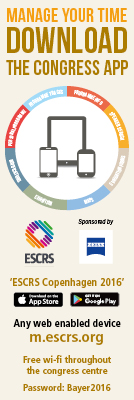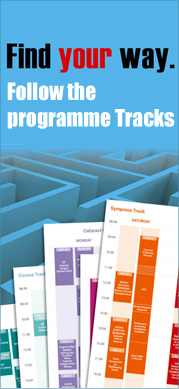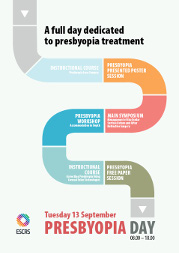Skill assessment and competency based cataract surgery education in EBO countries
Session Details
Session Title: Inflammation and Pathology
Session Date/Time: Sunday 11/09/2016 | 14:30-16:00
Paper Time: 15:00
Venue: Hall C2
First Author: : D.Muttuvelu DENMARK
Co Author(s): : C. Uggerhoej-Andersen
Abstract Details
Purpose:
To address the use and knowledge about skill assessment and competency based cataract surgical training in countries, who are member of the European Board of Ophthalmology (EBO-countries).
Setting:
Cataract surgery education in EBO-countries.
Methods:
A survey was e-mailed directly to all directors of the European Societies in Ophthalmology. The survey included queries about criteria’s to undergo cataract surgery training, the regulation of the cataract surgery, and skill assessment & training methods. In addition all Danish Eye Departments were further asked about if believe in assessment tool and competence based cataract surgery would improve the quality of cataract surgical training and if an assessment tool would be considered for use in future training of cataract surgeons.
Results:
The cataract surgery training in EBO-countries is very diverse; while some EBO-countries consider it mandatory in residency, most don´t. In EBO-countries, where the training is mandatory and regulated by the local health authority, the use of skill assessment tools and competency based education are more prevalent (e.g. U.K., Ireland, Swiss and Netherlands). Hence less prevalent in rest of the EBO-countries (e.g. Denmark). In Denmark none of the departments used assessment scores to evaluate their trainees, 63 % did not believe that the assessment tool would increase surgeon’s quality outcome, and less than 1/3 would consider frequent use of the tool to evaluate their future cataract trainees.
Conclusions:
General unawareness and skepticism towards objective structured assessment of surgical skills and a heterogeneous cataract training structure across EBO-countries is an issue to be addressed.
Financial Disclosure:
NONE





